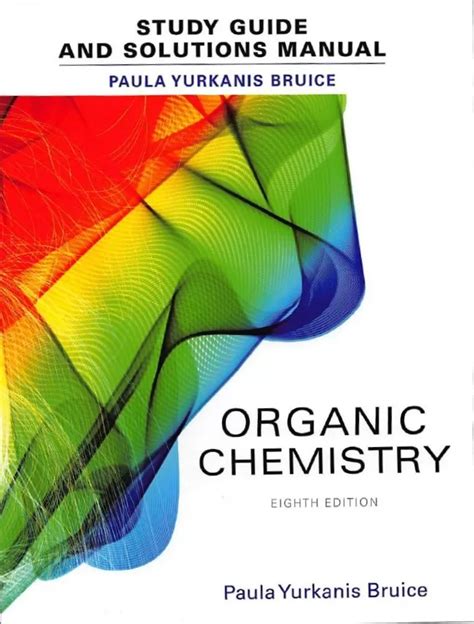Master the Art of Organic Chemistry
Organic chemistry is often considered one of the most challenging subjects in undergraduate chemistry. But with the right approach, you can not only conquer these challenges but also develop a deep understanding and appreciation for this fascinating field. Here’s an in-depth guide to help you excel in organic chemistry:

Step 1: Build a Strong Foundation
- Understand Basic Concepts: Familiarize yourself with fundamental concepts like functional groups, bonding, and molecular structure.
- Practice Drawing Structures: Practice drawing Lewis structures and skeletal structures to visualize molecules effectively.
- Memorize Reaction Mechanisms: Learn common organic reactions and their mechanisms. This knowledge will serve as the foundation for understanding complex reactions.
Step 2: Refine Your Study Techniques
Active Learning:
– Attend Lectures Regularly: Focus on understanding the concepts rather than just taking notes.
– Participate in Class: Ask questions, solve problems, and engage with the material.
– Review Regularly: Go over your notes daily or weekly to reinforce your understanding.
Practical Work:
– Solve Practice Problems: Engage in solving problems to test your knowledge and identify areas for improvement.
– Attend Study Sessions: Collaborate with classmates to solve problems and discuss concepts.
– Utilize Office Hours: Seek additional support from professors or TAs when needed.
Step 3: Enhance Your Understanding
Visualization Techniques:
– Use Molecular Models: Build physical models of molecules to better understand their three-dimensional structure.
– Draw on Whiteboards or Paper: Sketch reactions and mechanisms to visualize the flow of electrons.
– Employ Molecular Visualization Software: Utilize computer programs to explore molecules at the atomic level.
Connecting Concepts:
– Seek Connections: Identify the relationships between different organic reactions and concepts.
– Use Analogy: Draw parallels to known concepts from other areas of chemistry or real-world experiences.
– Apply Knowledge to Real-World Situations: Consider how organic chemistry principles are used in everyday life or industry.
Step 4: Prepare for Exams
Test-Taking Strategies:
– Review Thoroughly: Go over all your notes, practice problems, and previous exams.
– Practice Time Management: Take timed practice exams to manage your time effectively during the actual exam.
– Focus on Concepts: Prioritize understanding concepts over memorizing isolated facts.
Exam Tips:
– Show Your Work: Write down all your intermediate steps and reasoning to demonstrate your problem-solving process.
– Be Neat and Organized: Present your answers in a clear and concise manner.
– Check Your Answers: Review your answers and make sure they are consistent with your understanding of the concepts.
Step 5: Beyond the Classroom
Research and Exploration:
– Read Journals: Explore organic chemistry research journals to gain insights into cutting-edge discoveries.
– Attend Conferences: Network with professionals and stay updated on the latest advancements in the field.
– Consider Research: Take part in undergraduate research projects to apply your knowledge in a practical setting.
Career Opportunities:
– Industry: Explore careers in pharmaceuticals, biotechnology, materials science, and chemical engineering.
– Academia: Pursue teaching or research positions at universities or research institutions.
– Medicine: Utilize organic chemistry knowledge in fields like biochemistry, medicinal chemistry, and pharmacology.
Statistics and Impact
According to the American Chemical Society, over 100,000 undergraduate students enroll in organic chemistry courses annually in the United States. Of those, approximately 60% go on to pursue careers in fields related to organic chemistry.
Organic chemistry plays a vital role in the development of new pharmaceuticals, materials, and technologies. The global market for organic chemicals is expected to reach $1.3 trillion by 2027, highlighting the importance and relevance of this field.
Tips and Tricks
- Use flashcards to memorize reaction mechanisms and functional groups.
- Create concept maps to visualize the relationships between different organic chemistry topics.
- Utilize online resources like Khan Academy, Coursera, and MIT OpenCourseWare for additional support.
- Form study groups with classmates to share knowledge and motivate each other.
- Seek advice from upper-level students or TAs who have successfully mastered organic chemistry.
Pros and Cons of Organic Chemistry
Pros:
- Foundation for Diverse Careers: Organic chemistry opens doors to a wide range of career opportunities.
- Practical Applications: Organic chemistry is essential for understanding the chemical world and its impact on our daily lives.
- Intellectual Challenge: Mastering organic chemistry fosters critical thinking skills and perseverance.
Cons:
- Challenging Subject: Organic chemistry requires significant effort and dedication to understand.
- Time-Consuming: Learning organic chemistry can be time-intensive, especially given the number of reactions and mechanisms to memorize.
- High Level of Detail: Organic chemistry involves complex details and requires a high level of precision and accuracy.
FAQs
-
What are the most important concepts to focus on in organic chemistry?
– Functional groups, bonding, molecular structure, reaction mechanisms, and stereochemistry. -
How can I study effectively for organic chemistry exams?
– Attend lectures, practice problems, review regularly, and use visualization techniques. -
What are some career opportunities available with a background in organic chemistry?
– Pharmaceutical research, biotechnology, materials science, academia, and medicine. -
Is organic chemistry harder than other chemistry courses?
– Organic chemistry is generally considered one of the more challenging chemistry courses due to its complexity and the number of concepts covered. -
What is the best way to learn reaction mechanisms?
– Practice drawing them repeatedly, understand the electron flow, and use molecular models or visualization software. -
How can I improve my spatial reasoning skills for organic chemistry?
– Use molecular models, draw structures in three dimensions, and practice visualizing molecules from different perspectives. -
What are some common misconceptions that students have about organic chemistry?
– That it is only about memorizing reactions, that it is not applicable to real-world situations, and that it is impossible to excel in without innate talent. -
How much time should I dedicate to studying organic chemistry?
– The time required varies depending on individual learning styles, but experts recommend studying for at least 2-3 hours outside of class for every hour spent in class.
